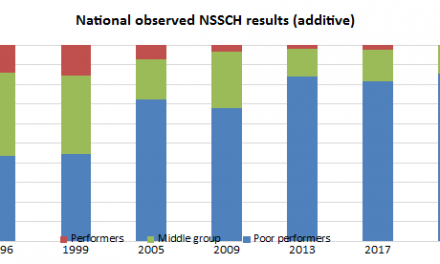
Offbeat 25 July 2014
 Reading is my own personal version of civilisation. Either you read, which makes you civilised, or you don’t, which either makes you uncivilised or in need of the help of an NGO of some or other kind.
Reading is my own personal version of civilisation. Either you read, which makes you civilised, or you don’t, which either makes you uncivilised or in need of the help of an NGO of some or other kind.
I’m a reader. I prefer to submerge myself in the pages of a book than to watch television. I will occasionally watch a movie, but those times are few and far between. I don’t have a television though, so I am most likely to watch a DVD on my laptop.
Normally the movies get watched in three or four interrupted episodes. I have the habit of watching for a bit, and then turning the thing off in boredom and frustration. I don’t much like seeing the way people want me to see. I prefer to imagine things from words. The definition is clearer. When I watch a movie, I also find the insight into what people are thinking comes up short. Books do that easily. Books rule.
I lived on a starvation ration of books for years, perhaps eight or ten if the year was good. The best of the books suffered from dog ears and broken spines, the proud result of reading and rereading. I was quite obsessive about getting new reading matter. Bookshops, in my mind, justified trips to other places, with larger selections. Suitcases came back far heavier than on their departure. The arrival of Amazon’s Kindle and the Kindle Book changed all that. The advent of the Kindle mobile app made it even easier. I can buy as many books as I can afford, and read wherever I am. In fact, I now carry four or five books with me on my mobile, wherever I go.
If the worst comes to the worst, I can give up eating, maybe devise a ‘Reader’s Starvation Diet’, rapid weight shedding by substituting two or three days of food for a book.
My book buying however has the aspect of obsessive hoarding. I have bought enough books to last me three of four years now if I read for five or six hours a day, so I am safe and doubt I will have to make sacrifices to read.
Reading is my own personal version of civilisation. Either you read, which makes you civilised, or you don’t, which either makes you uncivilised or in need of the help of an NGO of some or other kind. This may seem unfair given the fact that books can cost money. On the other hand, if you go to www.gutenberg.org, they have a vast collection of classic works available for free.
Let’s get to the meat of the matter now, the fact that the vast majority of Namibians rarely read and then, normally only for studies.
It’s a major problem, that has massive ramifications.
The most obvious issue is that language becomes rudimentary. If you want to be fit, you need exercise. If you want to be able to speak and write well, you need to be exposed to good language, which is found in the pages of books. If the country were to read more, the country would be a better place. It doesn’t need much in the way of proof. The best way to close this paragraph is probably to say that reading is patriotic. The less obvious issue, but probably equally important, is the fact that people don’t read fiction. Namibia has a habit of sticking to productive reading, focusing on education and self-improving works of non-fiction. That focus made sense years ago, when medical professionals, engineers and teachers were needed. Right now, it is the worst possible approach.
Recent studies showed that reading fiction produced interaction between the left and right hemispheres of the brain. What it boils down to is that fact and imagination interact with one another. Imagination produces possibilities, then the brain begins to work out ways that the possibility can be achieved. The combination of imagining possibilities and working out how to make them become real is the most critical aspect of innovation.
Until such time as children are encouraged to read fiction, from an early age, Namibia will be short-changed in the innovation department. If the children don’t read fiction, most of the ideas that take root in the country will, actually, be imported or appear haphazardly at best.
Although there may still be some argument that reading fiction is unproductive it is worth noting that kids will turn to TV, which is completely unproductive. Whatever the case, children must read stories.











































